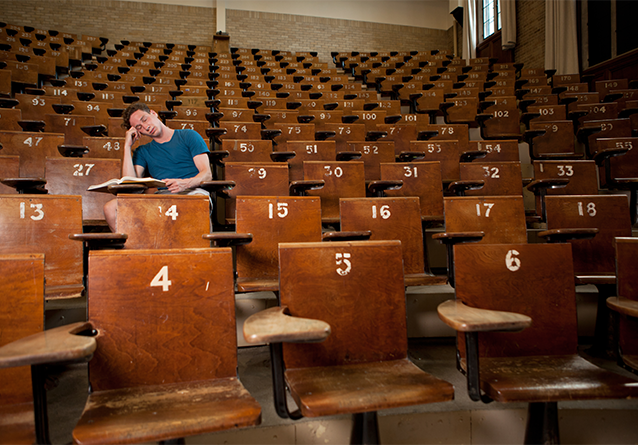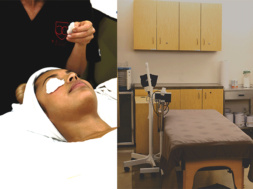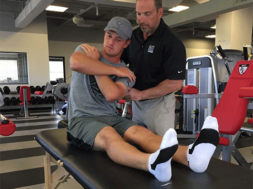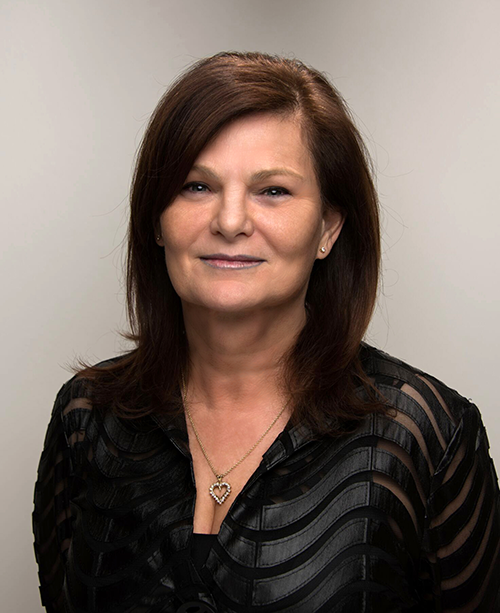
By Carol Woodard, CEO, Change is the new black, American Association of Cosmetology Schools
“Bueller? Bueller? Bueller?” Most of us are familiar with the scene from “Ferris Bueller’s Day Off,” where the teacher is trying to get the attention of high school student, Ferris, in a comically even and monotone voice. Perhaps we’ve never been quite as tedious or dull, but we’ve all been the teacher trying to reach the student who would rather be anywhere else but in our classroom. We’ve stood at the front of the room, book in hand, attempting to relay important information to help the student do well in a field that they have personally chosen to enter, information that they have likely gone into significant debt to receive, only to be met with blank stares, hair twirling, and empty seats.
We have the information they need to succeed, and yet they seem uninterested. Why?
Imagine you have been listening to the same person speak for over an hour. It is so quiet that you, and everyone else in the room, can hear your growling stomach. You want to pay attention, but you can’t help counting the tics of the clock and wondering how much longer until lunch (dinner, break, etc.). You’re hungry, and you’ve lost all feeling from the waist down from sitting in the same position in the same plastic chair for what seems like forever. You have felt your phone buzz two or three times, and you’re wondering if everything is okay out there, but you aren’t brave enough to quickly sneak a peek. Because you’ve been sitting so still, you have also seemed to stop producing body heat. So now you are freezing, hungry, worried, and you can no longer feel your legs, toes, or the tip of your nose. You could make a trip to the restroom to attempt to regain feeling in your limbs, but that would mean using your one socially acceptable bathroom break. What if you have a legitimate need for the restroom later? People begin to think weird things if you excuse yourself more than once in one sitting. Too risky. You stay in your seat, but you’re long past benefiting and learning from whatever you are trying to listen to.
There are lecture halls spread across every college campus in America. Students sign up out of obligation and for the credits, but no one actually wants to take a class that meets in one. The larger the room and the more seats it has, the less enticing it seems to become. It’s no wonder though, whether it’s a rebuking type (uh oh, someone’s in tr-uh-bull) or simply informative, no one wants to be on the receiving end of a lecture. It doesn’t matter how interesting the subject matter is or how important it is to our education and/or livelihood, we’re going to have a hard time sitting still, listening, and not thinking of the other one hundred thousand million things we think we need to get done that day. We are accumulating unread texts and emails, some of us really important people might even have missed phone calls. Is it rude to stand up and stretch? What if I just take a quick look at this email to make sure it isn’t an emergency? Was that thunder or the a/c? What are we talking about again?
Change is hard. By nature, we are creatures of habit. We like our routines and life is easier when things stay the same. The problem though is that we can miss out on chances to make life better by resisting change. Most of us have heard the Jon Bon Jovi song, “The More Things Change” and are familiar with the idea it proposes, “the more things change, the more they stay the same.” In some aspects, this is absolutely true. You should not, however, use it as an excuse not to change! Think of it as improvement instead. You aren’t changing the material you are teaching, you are simply improving its delivery and absorption. For instance, if I order something from an online retailer and I don’t have a membership, it’s going to take up to 4-5 business days to arrive. If I have a membership, I might get if for free in two days. The retailer didn’t change the product I’m receiving but instead improved it’s delivery while increasing the chances that I’ll remember, and seek to repeat, the experience.
So, what other forms of teaching are there aside from lecturing? You can role play. Use simulations. Utilize anything that engages the student directly with the information you are presenting. Skip the whiteboard and use a visually appealing PowerPoint presentation instead filled with photos and videos in place of long, boring paragraphs or textbook quotes. Encourage group discussion and do class projects.
When you don’t allow or encourage your students to participate, you are sending the message that they are not valued in your classroom.
In addition to including them in classroom discussion, give your students small jobs and let them help you run the classroom. When students feel valued and needed, they will feel as if your class is theirs, too. Maintaining passing class test scores, keeping an acceptable attendance record, and starting on time will become a shared responsibility, instead of yours alone. Develop a class motto or a mission statement. Encourage collaboration among your students. Let them work in groups. Once they have ownership of and feel pride in the classroom, you won’t need to teach them to be a responsible student. It will come naturally.
On that note, let’s talk about technology. Most of us aren’t as comfortable with technology as our students, and most of us feel like we still have a lot to learn. So, if the teacher is uncomfortable using something, does that mean it shouldn’t be used in the classroom, no matter how valuable of a tool it is? In this case, the answer is definitely no. Most students can type faster than they can write, so allow laptops or tablets for note-taking. I know you’re thinking they’ll just end up online, but the benefits outweigh having to set and occasionally walk the room to enforce those boundaries. Don’t be afraid of the smartphone, utilize it! It’s okay to learn from your students. Ask if there are any apps relating to the material or education in general that they are using that might be beneficial to share with the class. If there is something you want to incorporate, but you can’t quite figure it out, ask! Don’t hesitate to use your students’ experience with technology for the benefit of you and your class. Let them teach you, and they’ll not only be engaged, but they’ll feel valued, too.
Change has a habit of bringing chaos wherever it goes. So, let’s talk a little about personal grounding. I don’t mean preventing shocks from static electricity or finding your place in the universe, I mean staying grounded or anchored as the leader in your classroom. When I suggest that you share ownership with your students, I do not mean that you should give them control of the class. Those are two separate entities. The person who controls the class does the delegating. They give out tasks and share insight with their students, but they also oversee the class as a whole. Do not lose sight of that vision. If your students value your relationship enough to trust you with their life secrets, that’s fine, but do not unload all of yours, whether at school or not. Share with them classroom responsibility, sure, but do not burden them with your personal life drama. They do not need to know the details of your date last night and that you swiped right when you really should’ve swiped left, that your aunt’s second cousin has cancer, or that your cat died when you were 11 and left you with an emotional void but that you find the strength to move on by the joy you feel in teaching their class. Encourage them, yes. Drown them with details from your personal life, no. You also should not be spending much (if any) time outside of class socializing with students. Don’t go to the bar after school or to the party on Saturday night. Say this with me, “I do not need a relationship with my students outside of the classroom to make them feel valued inside the classroom.”
Socrates said, “the secret of change is to focus all your energy not on fighting the old, but on building the new.”
Let go of tedious lectures and embrace group learning. Don’t be afraid of technology or of learning from your students. Classes should be fun, animated, and full of student participation. Delegate responsibilities and let your students share ownership of the classroom, but maintain creative control and stay personally grounded. No matter where you are in your curriculum, it is never too late to change. Starting today, you can make the rest of your class the best of your class. Don’t just lecture. Engage!
CAROL WOODARD has helped thousands of students reach their dream of becoming successful in their chosen career – while continuing to inspire the teachers who educate them. Carol has served as Executive School Director and Education Director for a large private school and currently serves on the Board of Directors for Private Career Colleges and Schools as their Education Advisor. Carol is the Chairperson for the Career Educators Alliance (CEA), and a member of the Event Leadership Team with the American Association of Cosmetology Schools where she serves a role in planning annual events, leading various committees and teaching workshops. Awarded the prestigious Spirit of Service Award in 2015, Carol is the CEO of Change is the new black. Licensed in the state of Texas, Carol is certified as a National Educator by the American Medical Certification Association.
Carol’s public speaking engagements have gained international attention, and she was featured in O, the Oprah Magazine, as an education expert. She’s been published multiple times in BeautyLink magazine. She is the author of the groundbreaking book, “The Educator’s Diet: Teaching With 21st Century Recipes.” Her latest book “Personal Reflections: A Journaling Companion,” was released in May 2016.
Contact Information: Carol Woodard // CEO // Change is the new black // 817-999-5959 // carol@speakercarol.com // speakercarol.com











